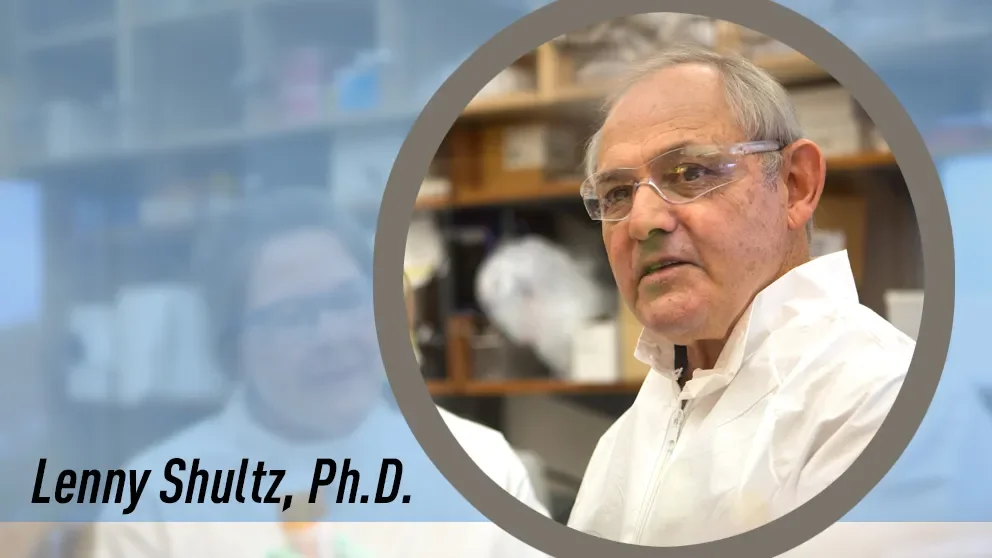JAX’s Lenny Shultz joins new JDRF Center of Excellence to advance Type 1 Diabetes research
Article | April 13, 2021
JDRF, the leading global organization funding type 1 diabetes (T1D) research, has announced the launch of the JDRF Center of Excellence in New England.
The new center is comprised of a team of experts from institutions in New England including The Jackson Laboratory’s Lenny Shultz , Ph.D. Shultz will work closely with this team at Harvard Medical School, Univ. of Massachusetts Medical School and the Joslin Diabetes Center towards its ultimate goal: finding a cure for type 1 diabetes through the development and validation of beta cells that are resistant to autoimmune and alloimmune rejection.
“I am very enthusiastic about working with JDRF and collaborating with my colleagues in the New England JDRF Center of Excellence on the ambitious goal of curing type 1 diabetes,” said Shultz. “The project will bring hope to the many families affected by this chronic condition.”
Researching the immune system using a powerful tool
As part of the JDRF Center of Excellence in New England, Shultz will develop and validate severely immunodeficient mouse models that support engraftment with stem cell-derived human beta cells and with a human immune system. These humanized mouse models will support the preclinical testing of engineered beta cells without putting patients at risk.
The cells Shultz uses in this project are induced pluripotent stem cells – or iPS cells. These are donated peripheral blood erythroblasts that are reprogrammed back into an embryonic-like state, allowing them to have all the properties of early embryonic stem cells, which are able to differentiate and develop into any tissue in the body.
"Our team is excited to work collaboratively to solve the problem of immune rejection of beta cells,” said Dr. Melton, who is the Xander University Professor of Stem Cell and Regenerative Biology at Harvard University and co-leader of the Center. “We aspire to find cell and gene manipulations that will enable cell transplantation to treat and maybe cure T1D."
Shultz’s research at JAX investigates human immunological disease and malignancy through the development and leveraging of novel humanized mouse models. Through these models, his lab has conducted translational studies on human hematopoiesis, immunity, autoimmunity, infectious diseases, diabetes, regenerative medicine and cancer.
Advancing the pace of diabetes research
The Center of Excellence in New England will focus on four main areas of beta-cell replacement research which include:
- Developing reliable systems to examine what happens in autoimmune attack at cellular and molecular levels to reduce or eliminate these reactions.
- Engineer a cell system that reproduces and amplifies the beta cell-to-immune cell interactions in human T1D so that we can better assess the effectiveness of therapies.
- Identify the different subsets of immune cells that target beta cells to apply this knowledge in the development of strategies that prevent beta cell destruction by the immune system.
- Explore new technologies, such as gene editing, to create stem cell-derived beta cells that can withstand immune attacks to use them in the development of cell replacement therapies.
“The time is now. In this unprecedented era in medical advancement, it is more important than ever that we leverage new innovation to accelerate the most promising areas of research towards cures for type 1 diabetes,” said Aaron Kowalski, Ph.D., JDRF CEO. “We believe wholeheartedly in the leadership of both Dr. Melton and Dr. Latres, and we are confident in the groundbreaking work that is sure to come from the Center of Excellence in New England.”

